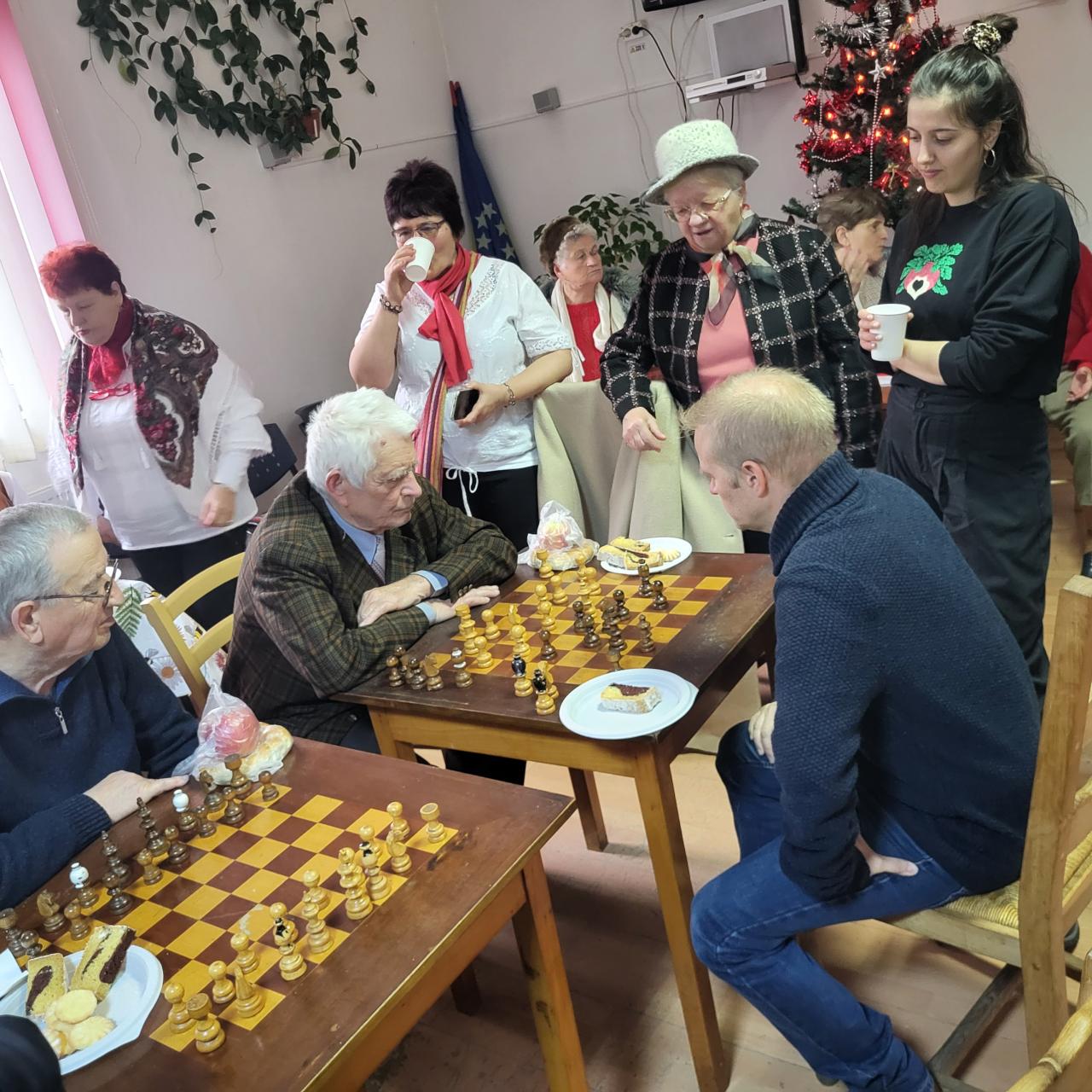Why does ideation & testing action matter? Because social isolation is a complex problem and it can’t be solved with a unique, readymade and simple solution. As H L Mencken puts it ‘For every complex problem there is a solution which is clear, simple and wrong.’ If ideation is done too quickly, it is very likely that the solutions that will come out are either rather classic or conventional, and very unlikely to explore the problem from new unexpected perspectives. Ideation requires creativity. And creativity requires time and creative brains. For the latter, of course cities can count on the creativity of their URBACT Local Groups… but even though they manage to gather heterogeneous profiles they don’t necessarily gather creative minds. ‘We were a bit disappointed with the ideas that came out, because they’re all pretty dull and classic. At least not very new or original’ commented a city partner. Many other cities nodded to the comment.
Indeed, URBACT Local Groups tend to gather all the experts, institutional partners, all the knowledgeable people around the same table… which is great to ensure a good understanding and multiple perspectives about social isolation, but if we put professionals alone around the table, it is not entirely a surprise that they will come up with ideas which either come from their own professional fields/spheres (a social worker will tend to see things through a social work question, a doctor through a health related service, etc.) and/or things they have seen deployed elsewhere. Of course, this last option might bring very promising ideas to the table but it is often things that are well known already or largely documented so not really new nor surprising.
While originality is not a criteria to solve a problem, there is really an added value to invest in the ideation phase for two main reasons:
- Ideation can allow you to enlarge the scope of ideas you may come up with and therefore the potential richness of the future actions of your Integrated Action Plan (IAP)
- Ideation can allow you to consider the problem from totally new, atypical, unexpected, indirect angles. And this may lead to public or social innovation (if tested and validated).
To support the ideation phase, the Lead Expert designed 3 adhoc creativity tools to be used freely by cities: the concept merge game, the what if cards, and the isolation story alternative ending principle (see the progress report here for more details about those tools). And in order for the partners not to be stuck with ‘classic’ ideas, all of them decided to run the ideation process through multiple ULG sessions (and even with parallel sessions outside ULG with youth, with elected officials, with citizens, etc.). Indeed, what we are looking for, at this stage at least, is the maximum number of ideas as possible, in order to have a choice, to compare them, to mix them, to assess them.
An ideation process cannot be reduced to a brainstorming post-it style one shot workshop. It needs creative imagining, then digestion, then review, then re-exploring etc.
Within the Breaking Isolation network, cities ran the ideation phase, roughly, from June to December 2024. And our last Transnational meeting of the year 2024, which took place in Roman, Romania, was the perfect moment for all cities to share with the others their potential testing actions ideas (so not their whole ideas list but only the ones which they consider could become Testing Actions – many ideas might become future actions of the IAP but some of them require to be tested out first, before being considered for the IAP).
In Pombal, Portugal, they are focusing on "bringing spaces to life" (how can public space design enhance social relations?) with initiatives like living streets to stimulate local social life and social ties, but also technical home support team for isolated people. In Serres, Greece, they are planning on organizing neighborhood convivial moments of sharing (for example collective picnic tables by the museum), connecting children and the elderly (sharing mutual skills & problems), or creating a multi-thematic website with an AI assistant (in order to help citizens find the proper help according to their situation).
In Isernia, Italy, testing actions ideas include identifying isolated individuals through questionnaires, organizing nature-based social walks (idea taken from Tonder, Denmark), social pop-up events, hosting skill-building workshops, facilitating intergenerational events (pairing young people with elderly), urban gardening, book & film social night clubs, community tea or aperitivo social events, or a solidarity taxi (idea taken from Skofka Loka, Slovenia, where elderly volunteers drive around other elderly in need of a ride using municipality-owned cars).
Fot, Hungary, is planning on raising awareness through a Breaking Isolation stand at the Christmas market and creating a Breaking Isolation cafe within the public library. They are also focusing on community-building initiatives like gardening through social NGOs (ROOTS) and organizing a common piano event (Being together through music) at the local market, or setting up a knocking doors process called ‘meet your neighbour’.
Skofja Loka, Slovenia, is proposing testing actions like a public garage with tools (tool library) for everyone to use and run collective repair (with the idea of bringing isolated men together), expanding a day center for the elderly, and organizing cultural visiting events together with free tickets for elderly and people with mobility issues (idea inspired by the museum prescription of the City of Brussels), but also organizing tours of social workers on bikes to visit isolated people, and finally setting up anti-bullying & digital awareness workshops.
Roman, Romania, is planning online and offline workshops for skills sharing and discussion, translating Breaking Isolation songs into Romanian for group singing, organizing virtual book clubs to encourage socialization, training to increase knowledge about social isolation, online & offline courses about emotions and anxiety management, community volunteer projects, etc.
In Agen, France, ideas for testing actions include creating an application for reporting (help to identify) isolated people, organizing delocalized ‘coffee meetings’ led by health professionals, setting up video workshops for people with distant families, creating an isolation self-test to assess your risk/situation of isolation, offering free student accommodation in senior residences in exchange of social support, etc.
Tonder, Denmark, is considering ‘social ministers’ in all clubs and voluntary organizations (people in charge of watching risks of isolation) , companion friends to tag along for social activities, creating an activity platform for easy access to information on existing social and cultural activities or including social isolation topic within People College (Folk School).
Jumilla, Spain, is considering straightforward yet impactful ideas like initiating a process of asking people how they feel and when was the last time they talked to a friend or laughed a lot (How do you do, for real?). They are also considering to implement an experimental "table cloth" installation which, set up in public space, would work as a meeting point to host conversation.
Bijelo Polje, Montenegro, is considering mutual visits between primary and secondary school students and elderly people in schools and the Day Care Center for the Elderly (with social games, exchange of life experiences), Roma days- Meetings with the isolated Roma population with the others in the suburban settlements, but also expand their network of telecare services (more info about it here: https://cbibplus.eu/projects/1st-telecare-social-protection-service-for-elderly-people-in-montenegro-and-serbia-2/).
With all those testing action ideas, the first trimester of the year 2025 will be undoubtedly exciting and interesting!


